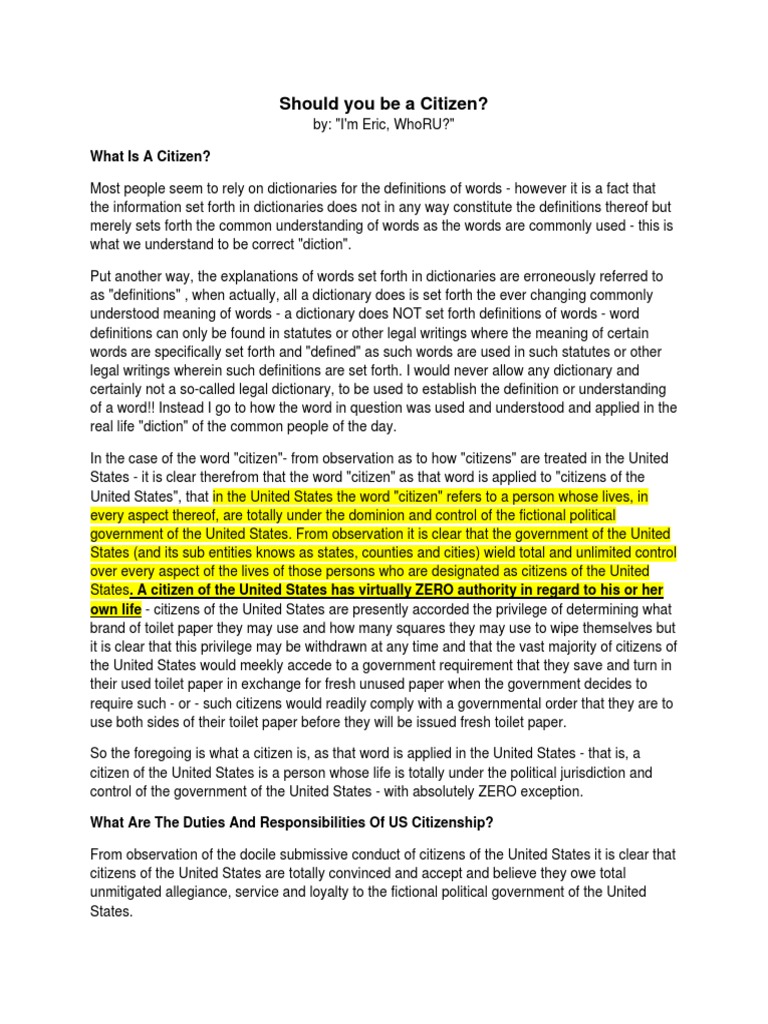In an increasingly interconnected world, the concept of citizenship transcends the mere possession of a passport or legal documentation. For adherents of the Bahá’í Faith, citizenship embodies profound spiritual and ethical implications, necessitating a commitment to justice, unity, and service. This article aims to explore the Bahá’í teachings on citizenship, elucidating what it means to be a responsible and engaged member of society, and inviting a transformative shift in perspective.
The Essence of Citizenship in Bahá’í Thought
According to Bahá’í teachings, true citizenship is not confined to national boundaries; it emanates from a higher, universal principle that emphasizes belonging to the global community. This perspective draws upon the scriptural writings of Bahá’u’lláh, the founder of the Bahá’í Faith, who proclaimed that humanity is one single race. The implications of such a statement are profound: citizenship must be aligned with the ideals of service to humanity, justice, and the fostering of community.
Citizenship, in this light, requires a paradigm shift from individualistic pursuits to collective well-being. It invites one to embrace altruism and a commitment to societal progress, reminding us that our actions resonate beyond personal interests. The Bahá’í principle of unity is a guiding light, urging individuals to cultivate harmonious relationships within diverse populations, thus enriching the fabric of society.
The Responsibilities of a Bahá’í Citizen
As active participants in the world, Bahá’í citizens bear specific responsibilities that accompany their rights. These responsibilities can be categorized into several pivotal areas:
- Promoting Justice: Bahá’ís are called to advocate for justice in all realms of life, whether through participating in public discourse, supporting equitable policies, or addressing social inequalities. This commitment to justice extends to supporting marginalized populations and ensuring that every individual’s rights are upheld.
- Engaging in Consultation: The process of consultation, a cardinal principle within the Bahá’í Faith, is instrumental in decision-making. Bahá’í citizens are encouraged to engage in constructive discussions that foster understanding and mutual respect, transcending partisan divisions. By valuing diverse perspectives, individuals not only enrich their own understanding but also contribute to collective wisdom.
- Cultivating a Sense of Belonging: A Bahá’í citizen actively strives to build a sense of community. This entails reaching across cultural divides and fostering relationships that celebrate diversity. By nurturing environments where all individuals feel valued, Bahá’ís contribute to the formation of a cohesive society.
- Stewardship of the Environment: The Bahá’í teachings emphasize the interconnectedness of humanity and the natural world. Citizens are urged to adopt sustainable practices and advocate for responsible environmental stewardship, recognizing that our actions impact future generations.
- Contributing to Education: Education is central to the Bahá’í Faith, viewed as a means of personal and collective advancement. A Bahá’í citizen should invest in the education of both themselves and others, fostering a society that values knowledge and critical thinking.
The Role of Service in Citizenship
A unique aspect of Bahá’í citizenship is the emphasis on service to others. Within this framework, individuals are encouraged to adopt an attitude of selflessness. Service may take myriad forms: from volunteering in local communities to engaging in global humanitarian efforts. The Bahá’í teachings posulate that genuine service not only benefits others but also serves as a vital means of personal spiritual growth.
This commitment to service fosters reciprocal bonds that elevate the community. By acting with compassion and benevolence, Bahá’í citizens embody the principle of unity, reinforcing the understanding that the true essence of citizenship is rooted in our interconnectedness.
Fostering a Global Perspective
In a world fraught with division, the Bahá’í concept of citizenship invites individuals to adopt a global perspective. This perspective encourages citizens to transcend narrow affiliations and identify primarily as members of the world community. The notion of seeking common ground amidst differences becomes imperative, particularly in addressing pressing global challenges such as climate change, poverty, and conflict.
Such a stance necessitates a willingness to engage in dialogue across cultural and ideological boundaries, acknowledging that understanding and cooperation are pivotal to sustainable solutions. Bahá’ís are encouraged to actively participate in initiatives that promote peace, as this is seen as both a responsibility and a privilege of citizenship.
The Transformative Power of Citizenship
Embracing the Bahá’í teachings on citizenship can catalyze profound personal transformation. By reframing one’s identity to that of a global citizen, individuals discover an enriching sense of purpose and belonging. This transition fosters intrinsic motivation to contribute positively to society, amplifying the impact of collective efforts.
Moreover, the willingness to challenge one’s assumptions and biases can lead to a more profound understanding of others. In turn, this empathetic engagement serves as a testament to the transformative potential embedded within the Bahá’í teachings, empowering individuals to act as conduits of change in their communities.
Conclusion
Being a citizen in the contemporary world entails more than mere legal recognition; it requires a profound commitment to justice, unity, and service as delineated by Bahá’í teachings. By engaging in these principles, individuals can foster relationships that transcend divisions, promote global understanding, and invigorate the spirit of cooperation. Ultimately, the call to citizenship is a call to elevate not only ourselves but the entirety of humanity, heralding a new era of solidarity and collective advancement.
